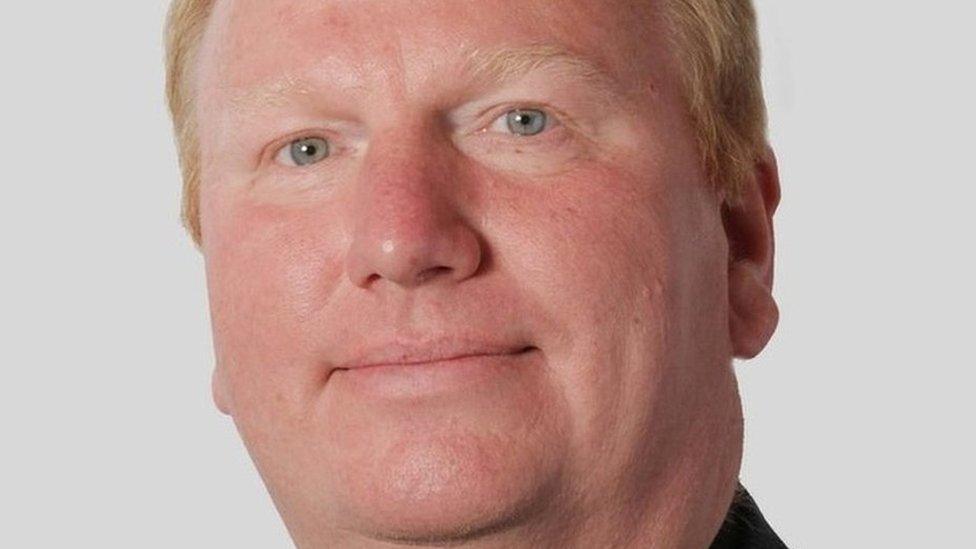Elections 2021: The race to be Cambridgeshire and Peterborough mayor
- Published
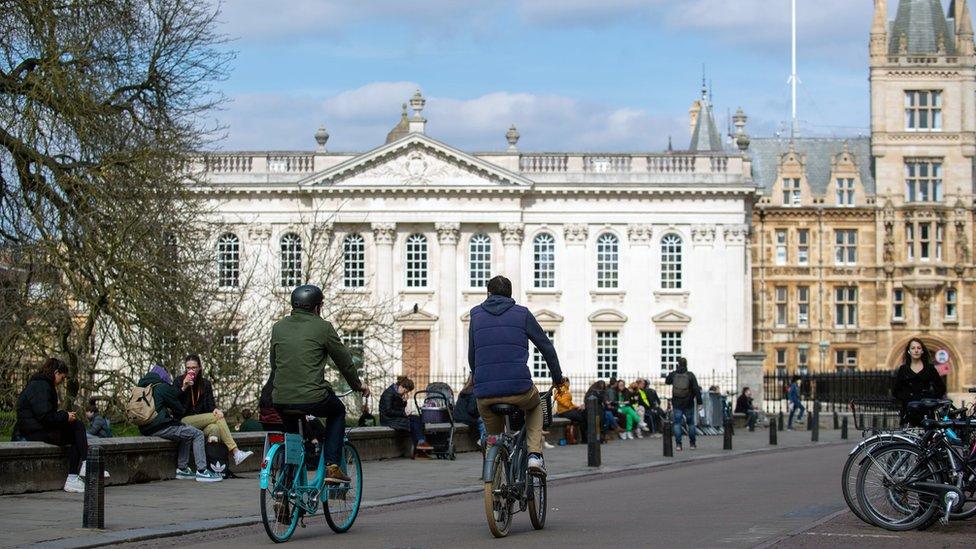
Voters across Cambridge and Peterborough will got to the polls to elect their next mayor in May
May's election will only be the second time voters in Cambridgeshire and Peterborough have gone to the polls to elect their mayor. The BBC has been looking at what the role entails and how it came into being in 2017.

Why does Cambridgeshire and Peterborough have a mayor?
Mayors exist at local authorities up and down the country.
Some, such as in Bedford, are elected and work as the leaders of councils. Many are ceremonial and have no administrative power, instead acting as a figurehead for the area they represent.
The position in Cambridgeshire and Peterborough is somewhat different.
In this region, the mayor is a directly elected official who oversees control of a devolved combined authority. He or she works with that authority, which is made up of representatives from local councils.
The combined authority was officially formed in March 2017 after being approved by Sajid Javid, the communities secretary at the time.
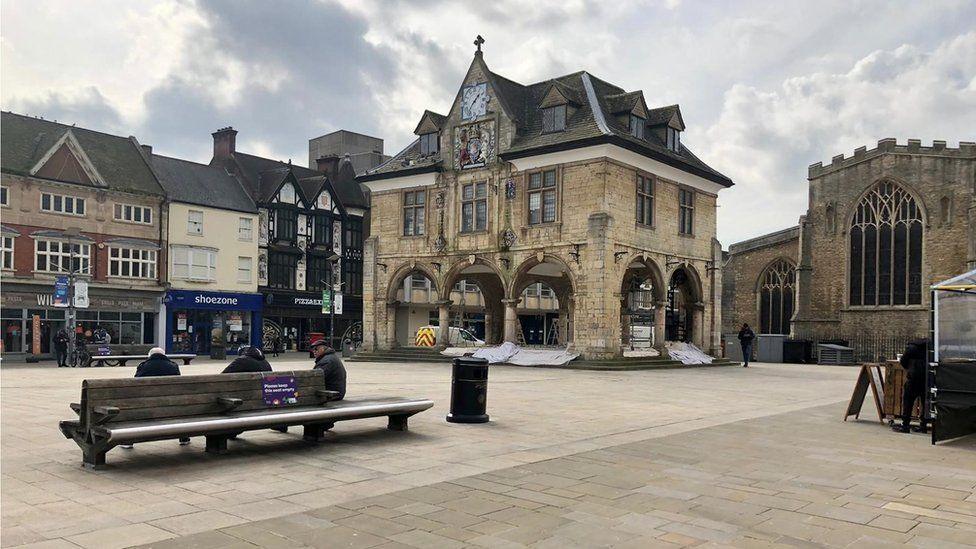
Seven councils, including Peterborough City Council, have a representative on the combined authority
The role was one of six such positions elected for the first time in 2017 to lead new combined authorities in England.
The authorities themselves are groups of councils working together to exercise powers, devolved from central government, over matters such as transport, housing, planning, skills and economic development.
The other combined authority mayors are based in Greater Manchester, the Liverpool City Region, Tees Valley, the West of England and the West Midlands.


You won't have seen Cambridgeshire and Peterborough's mayor waving the union jack while stuck on a zip wire. Nor will you have seen their press conferences carried live on the news channels.
There just hasn't been the sort of break-out recognition for our mayor as for those in London or Greater Manchester.
That may be to do with personalities, or circumstances, or that our mayor has significantly fewer powers than many of their colleagues.
But make no mistake: our metro mayor matters. It's the highest elected office in our region - both the money involved and the ambition are significant.
Overall, the mayor and their combined authority are charged with growing the area's economic output from £22bn to £40bn within 25 years. They have multi-million pound budgets for housing, adult education and transport.
And there could be evolution in the devolution deal: there's always the possibility of more powers being passed down from Westminster.
There are distinct differences in what the candidates are offering.
The current mayor points voters to what he sees as his first term's highlights: starting to build homes for sale at £100,000, developing plans for an autonomous metro - including tunnelling under Cambridge - and pushing ahead with Peterborough University.
But the Lib Dem candidate says he'll scrap the "gimmick" £100k homes scheme, focus on an alternative "realistic mass transit system" and try to create a "greener and fairer society".
Labour's pick has also criticised £100k homes, saying too few are being built (about 20 so far) and more should be done to build affordable homes to rent.
As a paediatrician at Hinchingbrooke Hospital, he's also vowed to invite public health leaders into the combined authority to help improve decision-making

How does the combined authority work?
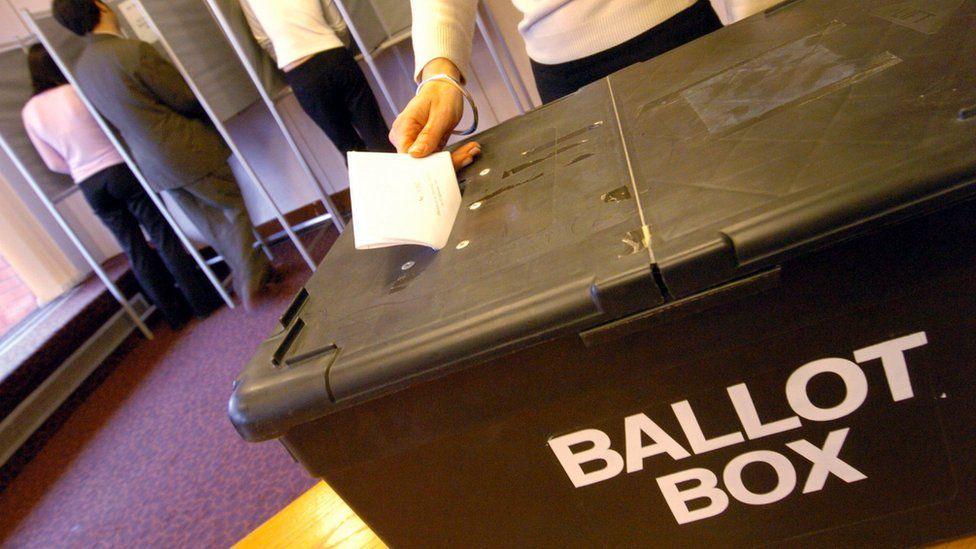
The elected mayor of the combined authority has greater spending powers than traditional council or ceremonial mayors
In November 2016, councillors across Cambridgeshire and Peterborough voted to back a devolution deal to form a new administrative body.
In doing so, they agreed their council would become a constituent member of the Combined Authority for Cambridgeshire and Peterborough.
Those councils on the combined authority are Cambridgeshire County Council, Peterborough City Council, Cambridge City Council, East Cambridgeshire District Council, Fenland District Council, Huntingdonshire District Council and South Cambridgeshire District Council.
Each has a representative on the authority, which is led by the elected mayor - who may be of a different political persuasion to the leaders of the councils he works alongside.

What powers does the mayor have?
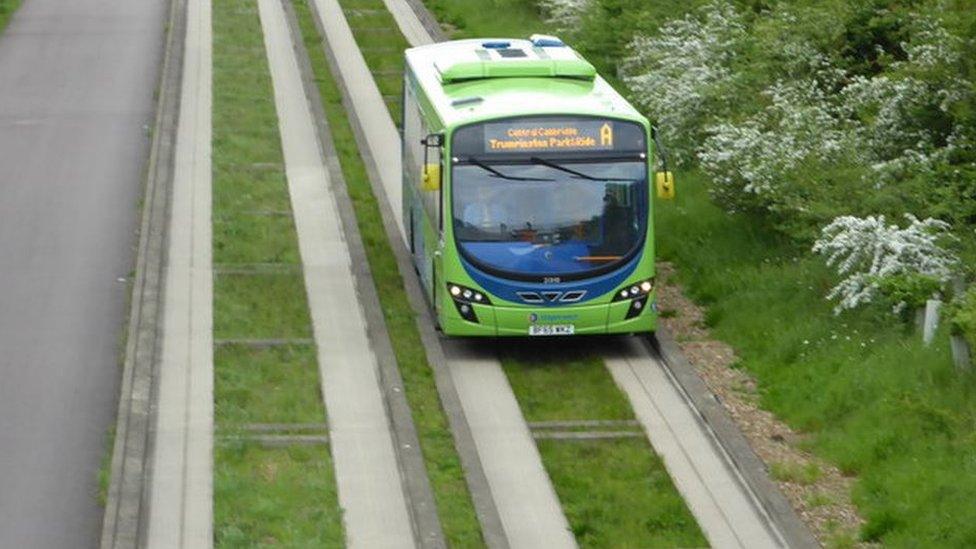
A decision over an extension to Cambridgeshire's guided busway is one of the issues facing the next mayor
As a devolved body, the combined authority has greater powers and finance than traditional councils for major projects in areas such as transport, affordable housing and developing economic growth.
As part of the devolution deal, the mayor was given access to a £600m fund - divided into £20m chunks over 30 years - to support economic growth, as well as development of local infrastructure and jobs.
In 2017, a sum of £170m was made available for new homes, with £70m earmarked specifically for Cambridge. That money was due to be spent by 2021, but the timeframe has been extended to 2022.
A budget of £12.5m for adult education has also now been devolved to the mayor and combined authority.

Who is standing to be mayor?

Conservative James Palmer won the first election to be Cambridgeshire and Peterborough's mayor
The area's first ever mayoral election was won by Conservative James Palmer, a former leader of East Cambridgeshire District Council.
This time around the mayoral race will be contested between the incumbent Mr Palmer, Liberal Democrat Aidan Van de Weyer and Labour's Nik Johnson.
The vote will take place on Thursday, 6 May with results likely to be announced on Saturday, 8 May.

ENGLAND'S ELECTIONS: THE BASICS
What's happening? On 6 May, people across England will vote for new councillors, mayors and police and crime commissioners. Register to vote here, external.
Why does it matter? When parties win control of a council, they decide policies for your area which could affect services ranging from social care to rubbish collection. Find out more about what councils do.
Who can vote? Anyone who lives in England, is registered to vote and aged 18 or over on 6 May is eligible. Find your local election here.


Find BBC News: East of England on Facebook, external, Instagram, external and Twitter, external. If you have a story suggestion email eastofenglandnews@bbc.co.uk
- Published25 April 2021
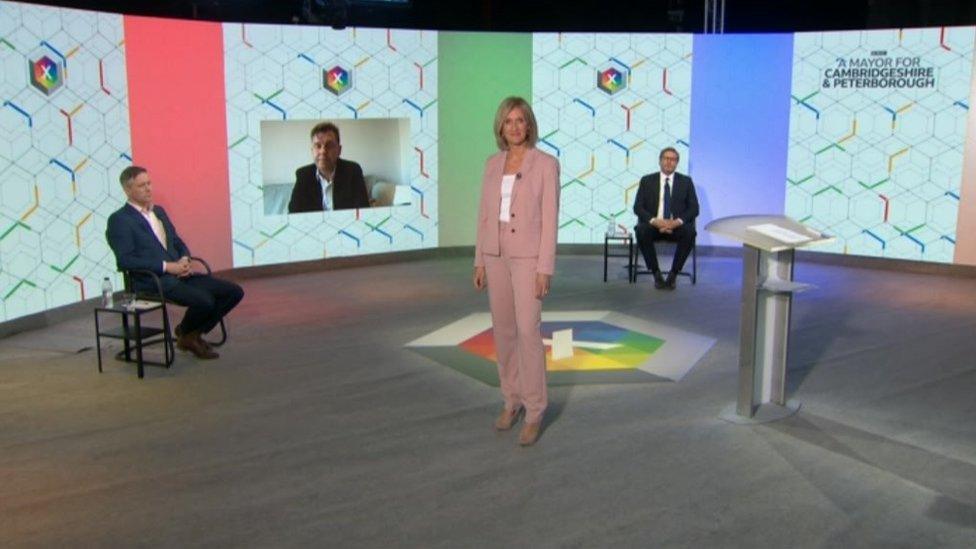
- Published24 April 2021

- Published23 April 2021
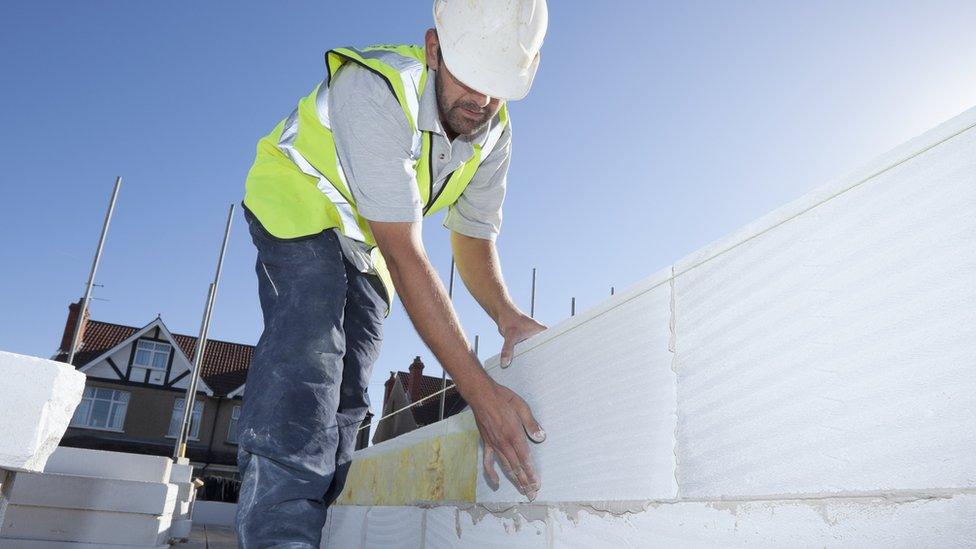
- Published22 April 2021
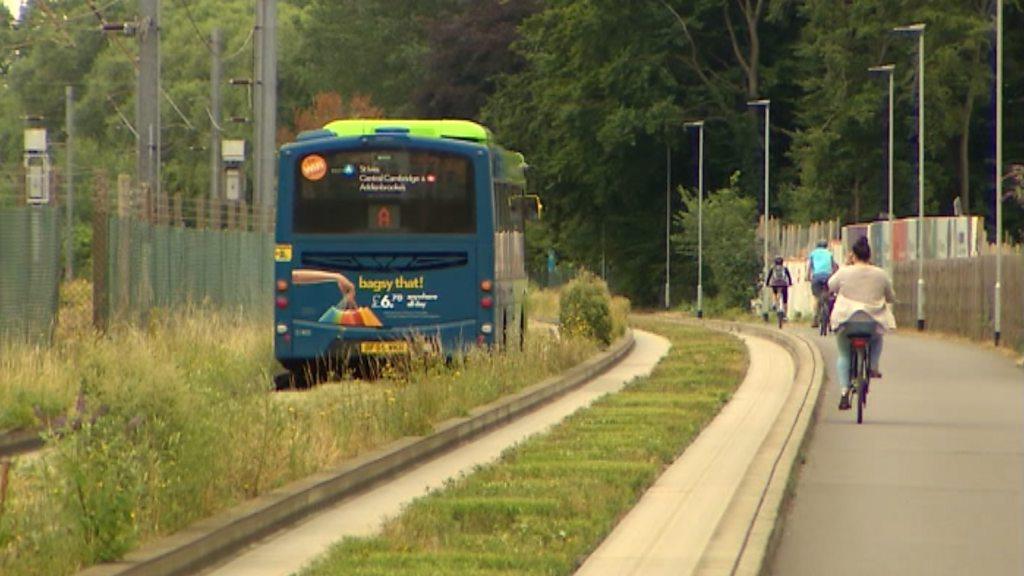
- Published22 April 2021
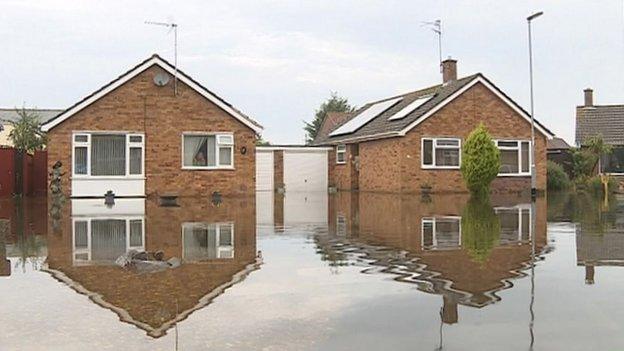
- Published19 April 2021
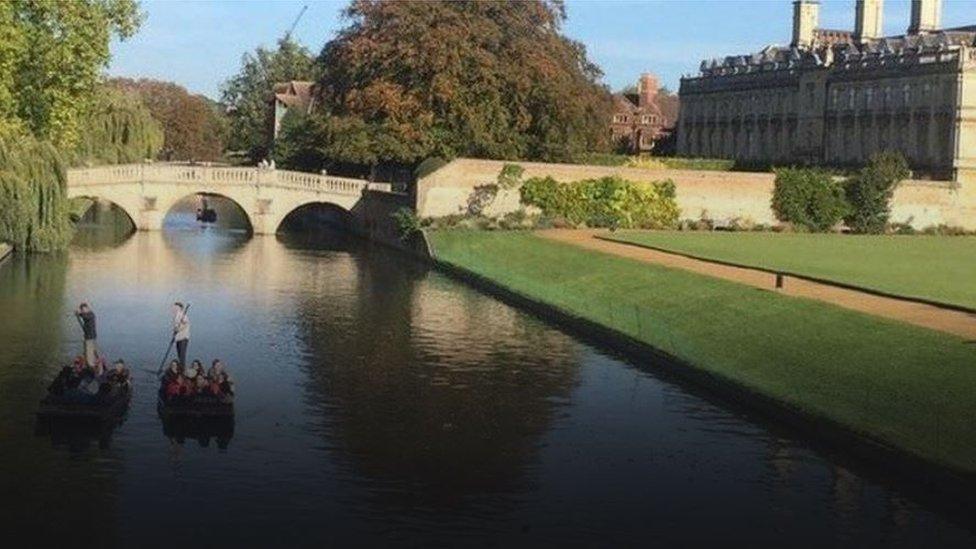
- Published5 May 2017
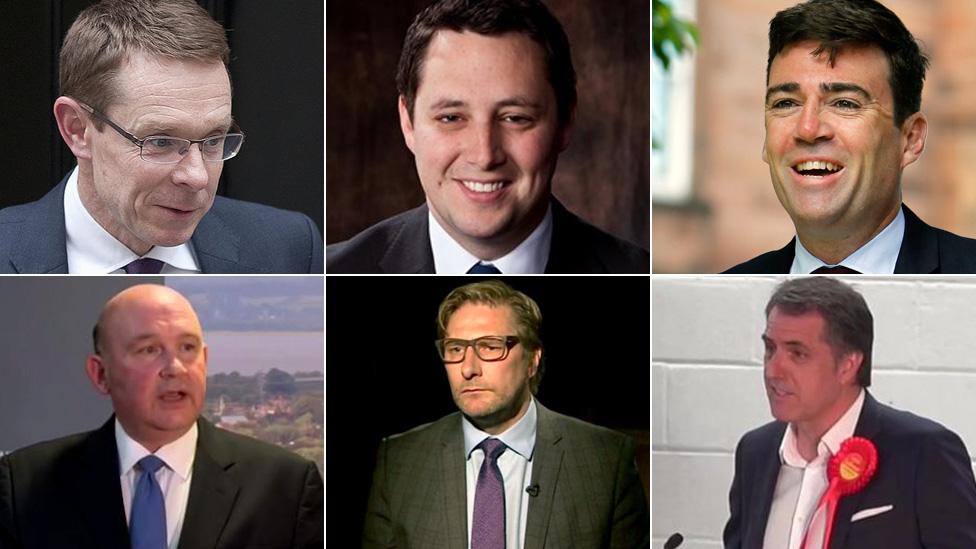
- Published23 November 2016
